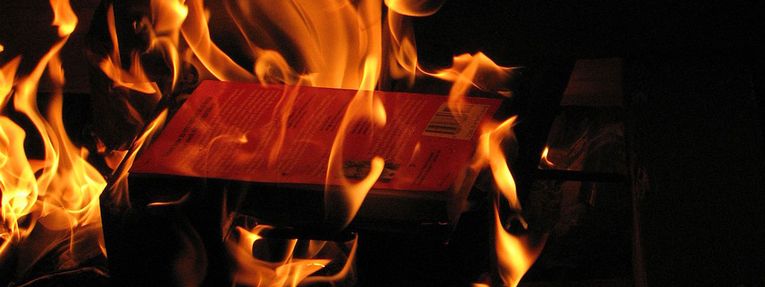Some of the world’s greatest books have been censored, banned outright, and even burned over the years.
Whether as a result of sexual references deemed to be too explicit, or the subject matter simply being seen as taboo, certain rules implemented by certain parts of society have tried to silence our storytellers.
It’s not just books, either, as well all know, with efforts in 1902 seeing the kind of online pokies NZ has to offer being outlawed in many states in the USA.
But, in the case of both works of literature and great pokies, these prohibitions were eventually overturned, and now we can all choose to enjoy not only the authors and titles we may be interested in but the games we enjoy from some of the world’s foremost developers as well.
The Confessions of Nat Turner
The Confessions of Nat Turner by William Styron got burned! Styron, famous for his harrowing work Sophie’s Choice eventually made in to an acclaimed film with Meryl Streep, portrays the leader of a slave rebellion in 1831 which paved the way for abolitionism in this book.
Confessions got published at the height of the Civil Rights Movement in the 1960s, holding a mirror up to the injustices and racism that were still daily facts of life for coloured people.
Last Exit to Brooklyn
Hubert Selby Jr.’s Last Exit to Brooklyn saw its publisher, Grove Press, getting sued for obscenity. The book takes an uncompromising look at 1960s New York’s uglier corners and details drugs, sex, and violence to a disturbing degree.
The unbridled honesty took readers by surprise, to be sure, with the Los Angeles Times comparing its edge to that of a switchblade when it was published in 1964.
The Good Earth
This book by Pearl S. Buck got banned. It saw her drawing from her childhood in China at the turn of the last century to tell the story of a poor farmer’s search for happiness, success, and some land to call his own.
Although it won the Pulitzer in 1932, Chairman Mao Zedong was not happy with the bleak picture it painted of the People’s Republic of China.
Bury My Heart at Wounded Knee
Dee Brown published the truly shocking Bury My Heart at Wounded Knee in 1970 and horrified readers with its honest depiction of the systematic annihilation of the American Indian tribes across the frontier. The unsettling subject matter saw a Wisconsin school district banning it just 4 years later.
The Black Book
Lawrence Durrell’s The Black Book was described by The Observer as energetically morbid and richly obscene when it was published by The Obelisk Press in 1938. The surrealist novel depicts the story of an unconventional group of Londoners as observed by narrators Death Gregory and Lawrence Lucifer.
After another sexually explicit work, D.H. Lawrence’s Lady Chatterley’s Lover, got successfully defended against charges of obscenity in 1960, The Black Book also got removed from the British Literary Blacklist, and readers got to enjoy it from 1973 onwards.


 Three Things to Remember Before Spending on Home Renovation
Three Things to Remember Before Spending on Home Renovation